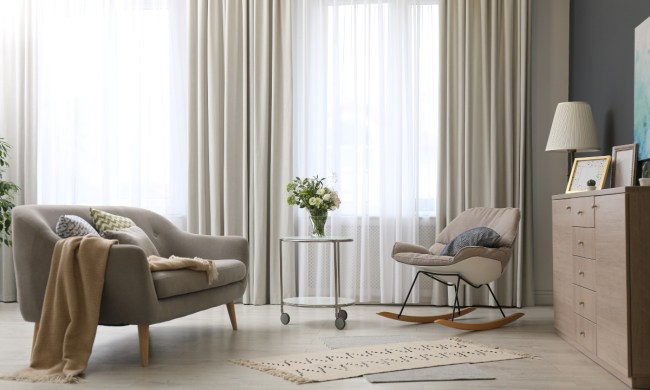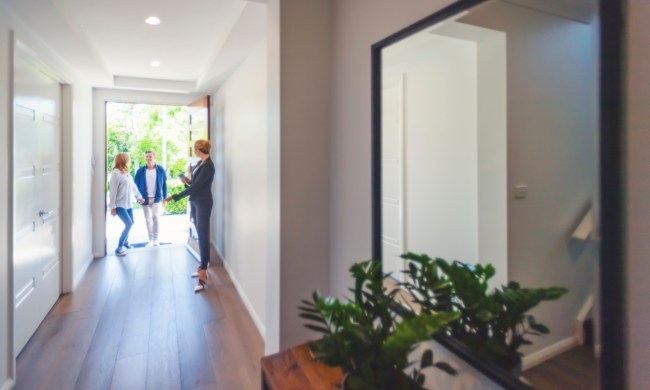Your bedroom should be your sanctuary — your happy place, where you can rest and, ideally, get at least seven or eight hours of sleep a night. A good night’s sleep is crucial: It positively affects your immune system, can help prevent weight gain, can strengthen your heart, and puts you in a better mood, just to name a few benefits. If you’re not getting a good night’s sleep regularly and are wondering how to sleep better, you should really consider taking our experts’ advice. You may be surprised to find out that much of it has to do with your bedroom setup.
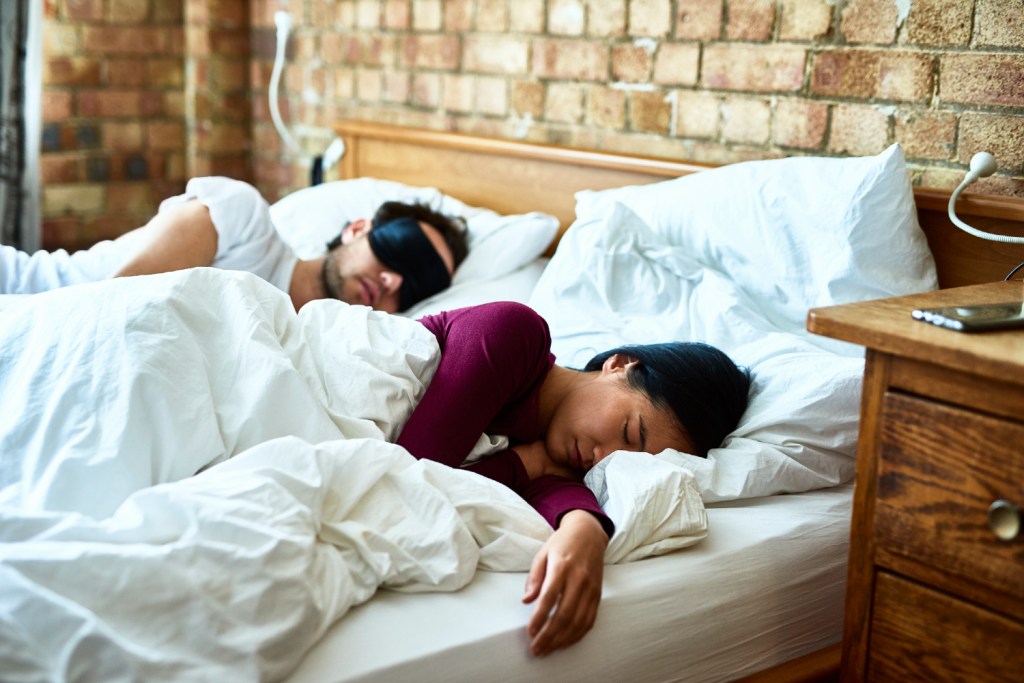
Are there items that can help you get a good night’s sleep?
Experts agree: Your bedroom is the most important room in the house and should be designed with your sleep patterns in mind. Since we spend a third of our lives sleeping, it makes sense to think about creating a room that fosters the best possible sleep. Some of them are as simple as making sure the room is dark, quiet, and cool. Think black-out window treatments, white noise machines, and a fan to circulate air. After you’ve conquered those three things, check out the other factors to consider below.
Sheets
According to Marc Werner, the founder and CEO of Nature’s Sleep, choosing bedding that suits your sleep needs is vital and plays a role in keeping your body temperature cool. There are many different types of sheets available, from cotton to silk or bamboo to cashmere wool, so you shouldn’t have trouble finding the best ones for your body temperature.
Mattress
It’s essential to sleep on a supportive mattress. According to Dr. Peter Polos (MD, PhD, FCCP, FAASM), a sleep medicine specialist and Sleep Number sleep expert, this is especially true “for those who are specifically experiencing neck or lower back pain (they should look for a bed that supports the small of their back) and those who have sore muscles (a softer bed can help as their body recovers).”
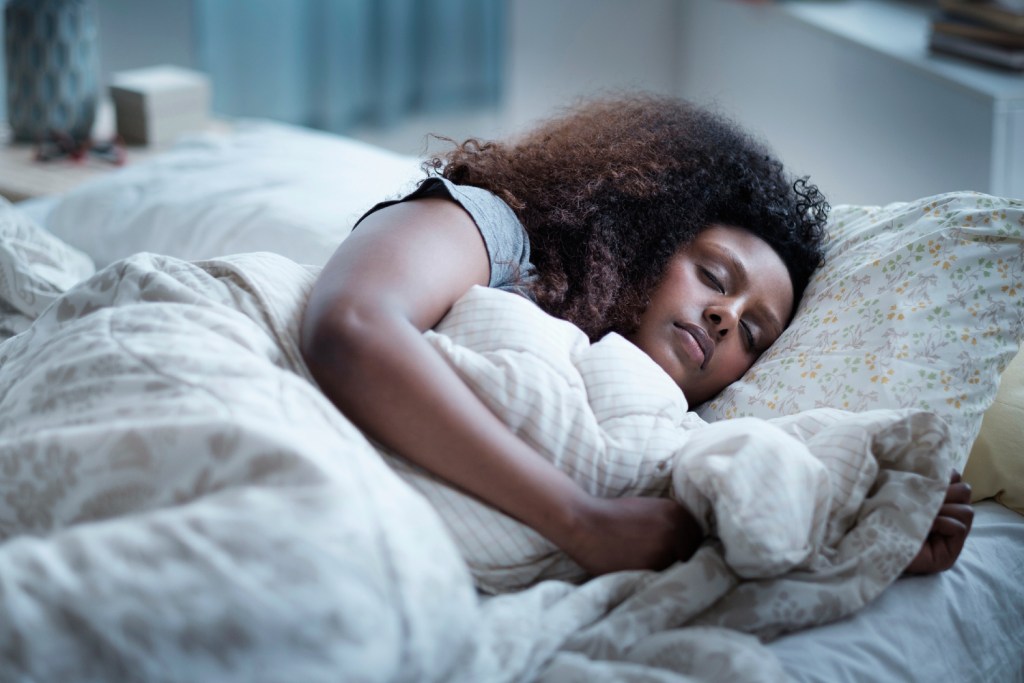
What are the do’s and don’ts of tech and sleep?
Do’s
Both Werner and Dr. Polos agree that apps that track sleep can be helpful when trying to gain a better understanding of your sleep patterns and how they impact your overall health. However, other than apps and devices to help you learn about your sleep patterns, most experts discourage combining tech and sleep.
Don’ts
Almost everyone keeps a cell phone or device on their bedside table these days, but experts all agree that it’s critical to resist the temptation to scroll, text, or email right before bed. The same principle applies to the TV, and many experts say that there shouldn’t even be a TV in your bedroom. Here’s Dr. Polos’ take:
“I generally recommend that people try to shut down their electronics at least one hour before bed to avoid the blue light exposure that comes from your computer, tablet, cell phone or television — this can actually inhibit our body’s ability to release melatonin (which tells our body it’s time for bed) and, as a result, delays our sleep onset.”
Other items to consider
Clutter
Aside from all forms of technology and blue light, you should also be sure that your bedroom is free of clutter. Vanessa Osorio, a sleep health content specialist and sleep expert, said, “Research from St. Lawrence University found that those who had clutter in empty spaces in the bedroom took longer to fall asleep.” Luckily for you, it’s not difficult to declutter a space. Take clothes off the floor and put them where they belong, keep only necessities on the nightstand, throw away trash, and take used dishes to the kitchen. The challenging part about removing clutter is keeping up with it.
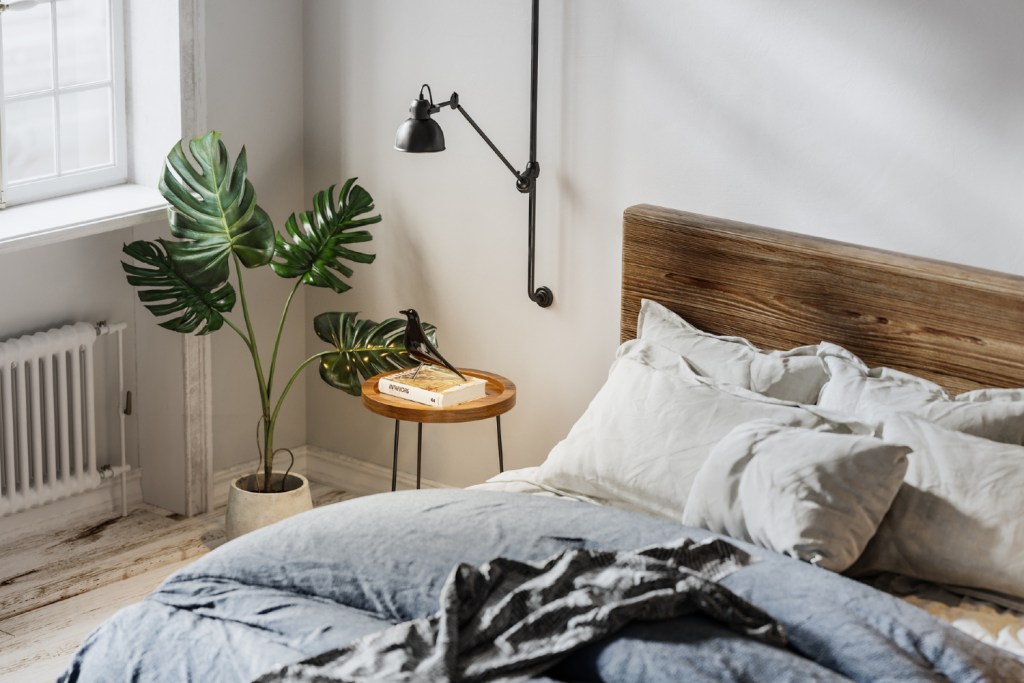
Calming colors
Your bedroom’s colors and overall decor should be cool and calming. Think tones such as grey, lavender, green, and cool blue. Not only are cool-toned colors known to lower blood pressure, but they also help you feel relaxed and at ease, all of which aid in a good night’s sleep. If you’re not ready for a remodel or even a new paint job, pick out some bedding, rugs, or art that calms you as a start.
Sleep is essential to your well-being, both physically and mentally, so it’s no wonder most experts agree that your bedroom should be a sleep sanctuary. By choosing a comfortable mattress and sheets, avoiding technology and clutter, and including calming colors in your bedroom, you can increase your chances of getting a good night’s sleep. With these tips from our experts, you’ll be sleeping like a baby in no time.

